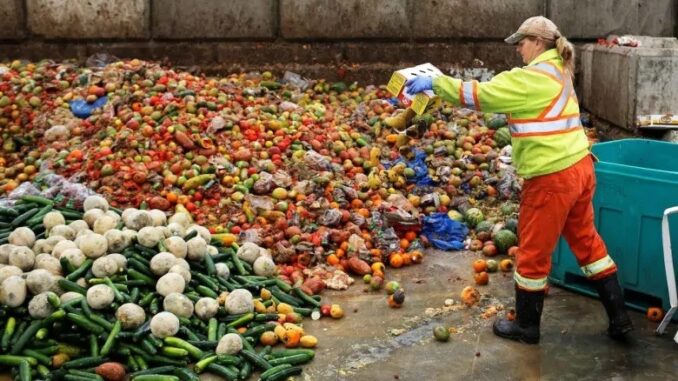
Despite efforts to promote sustainability and reduce environmental impact, new data reveals a troubling trend of escalating food waste in the city. As concerns grow over the environmental, social, and economic consequences of this burgeoning problem, calls for urgent action are reverberating across Toronto
According to Made In Canada, 50 tonnes of food is being wasted by Canadian every year. This results in multiple environmental issues and financial losses. While one in eight Canadian households was insecure in 2018, the food waste issue continues.
According to the UN Food Waste Index from 2021, the average Canadian household wastes 79 kilograms of food every year. In comparison, the annual household food waste in the United States is 59 kilograms, and 77 kilograms in the United Kingdom. Some of the worst countries in the world include Greece (142 kilograms) and Malta (129 kilograms) and some of the best are Austria (39 kilograms) and Slovenia (33-36 kilograms).
The surge in food waste poses significant environmental and economic challenges for Toronto. Rotting food in landfills emits methane, a potent greenhouse gas that contributes to climate change and air pollution. Additionally, the disposal of food waste incurs substantial costs for waste management and landfill operations, placing a strain on municipal resources and taxpayer dollars.
Sabrina, a conscientious and environmentally minded individual, has embraced the “Too Good To Go” app as a powerful tool in her mission to combat food waste. With a passion for sustainability and a desire to make a positive impact on her community, Sabrina regularly uses the app to rescue surplus food from local restaurants, bakeries, and grocery stores that would otherwise end up in landfills. By purchasing "magic bags" at discounted prices through the app, Sabrina not only saves money on delicious meals and treats but also contributes to the reduction of food waste in her area. Inspired by the app's mission to create a world with less waste, Sabrina embodies the spirit of grassroots activism and everyday environmentalism, proving that small actions can lead to significant change.
According to Second Harvest, much of the surplus edible food is not donated because of five main reasons that are:
- Legal liability
- Lack of financial benefit
- Policies that prevent or discourage donation.
- Ineffective communication and coordination between producers and food rescue organisations; and
- Perceived complexity of donating compared to alternative disposal.
If edible surplus food could be rescued or redistributed, it would equate to a 3.82-tonne reduction of greenhouse gas emissions for each tonne of food.
In response to the growing food waste crisis, community organizations, non-profits, and grassroots initiatives are mobilizing to raise awareness and implement solutions at the local level. From food recovery programs to composting initiatives, these efforts demonstrate the power of collective action in combating food waste and fostering a culture of sustainability in Toronto.
- Toronto businesses find creative ways to reduce their waste
- More than half of all food produced in Canada is lost or wasted, report says
While community-driven initiatives play a crucial role in addressing food waste, government and industry leadership are also essential in driving systemic change. Advocates are calling on policymakers to implement policies and regulations that incentivize waste reduction, promote food recovery, and support sustainable practices throughout the food supply chain.
According to Love Food Hate Waste, the most common food items thrown away in Canada are fruits and vegetables. Vegetables form 30% and fruits 15% of the household food waste. Leftovers account for 13%, bread, and bakery products for 9%, dairy, and eggs for 7%, meat, fish, and poultry for 6%, and other food items, such as crisps, snacks, and desserts, for 20% of household food waste.
Every day in Canada, about 1.2 million tomatoes, 1.225 million apples, 2.4 million potatoes, 650,000 loaves of bread, 640,000 bananas, one million cups of milk, 470,000 eggs, and 139,000 lettuce heads are wasted. Fresh produce like this is mainly wasted because of overbuying and improper storage.
As Toronto grapples with the challenges of a growing food waste crisis, the need for collective action and bold leadership has never been greater. By raising awareness, implementing innovative solutions, and fostering collaboration among stakeholders, the city can chart a path towards a more sustainable and resilient future. The time for action is now, and the stakes could not be higher as Toronto confronts the urgent imperative to curb food waste and build a healthier, more equitable city for all.
Beyond environmental and economic concerns, food waste exacerbates issues of food insecurity and inequality in Toronto. While thousands of tons of edible food are discarded each year, many individuals and families in the city struggle to access nutritious meals. Addressing food waste is not only a matter of environmental stewardship but also a moral imperative to ensure equitable access to food for all residents.

Be the first to comment